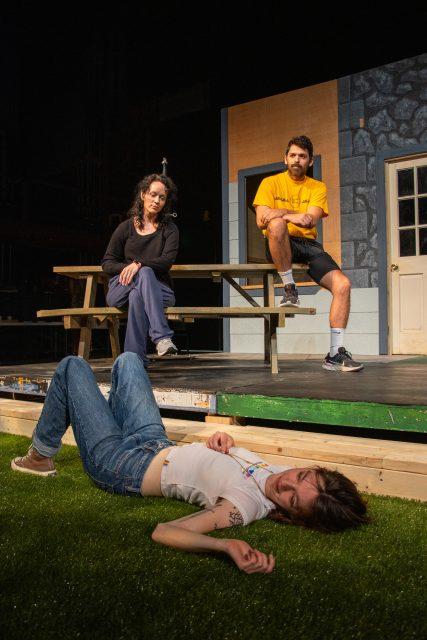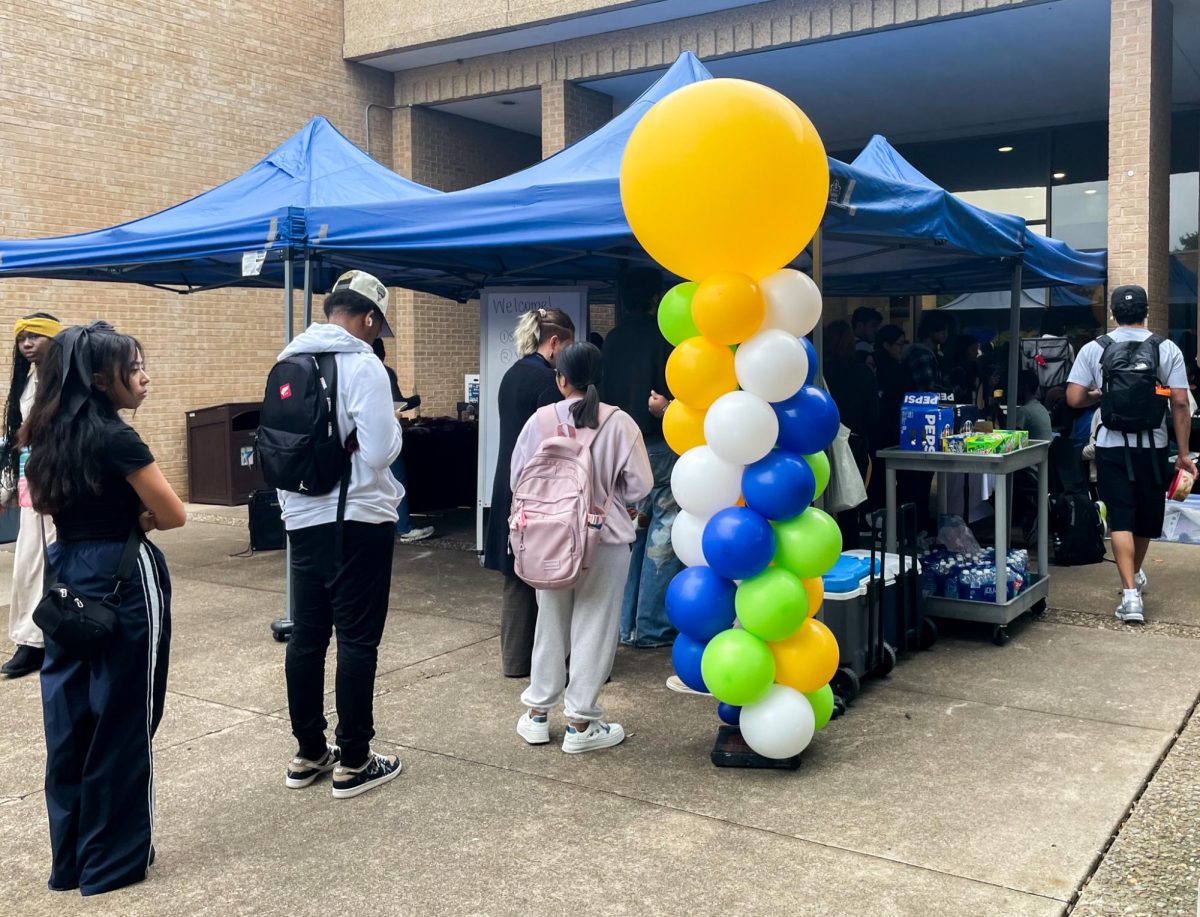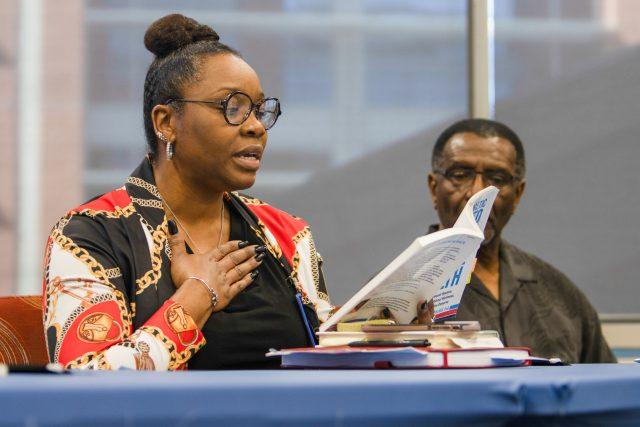XAVIER BOATNER
campus editor
xaiver.boatner@my.tccd.edu
The story of an enigmatic woman who questions the extent of her inheritance is being given new life thanks to TCC.
David Auburn’s “Proof,” a Pulitzer Prize-winning stage play, is coming to NE campus on Mar. 6 at 7 p.m. The NE Playhouse is set to tell the tale of Catherine, a curious daughter on a mission to explore the nature of her genius and examine the world of mathematics through the eyes of intelligent women.
Jakie Cabe, associate drama professor stage play director, said one of the most intriguing parts of the plot is how it manages to walk the fine line between madness and brilliance.
“The story walks the fine line between brilliance and madness,” Cabe said. “It centers around a father and daughter, and the father was a mathematical genius and professor.
Some cast members, like NE student Alexis Harrison, who plays Claire, felt similarly about the play, and the way it examined the line between the two concepts, as well as other dynamics.
“I really liked the father daughter dynamic of the play,” she said. “I was drawn to it. I was close with my dad. I really liked my character. I think that she is misunderstood in her own way, just like Catherine’s misunderstood in her own way. And it’s just a clash of personalities, but nobody’s really a bad person. The story was unique – it’s different. It makes you question. What’s brilliant, and what’s not? What’s just madness?
When discussing what drew certain cast members to their roles, NE student Cal Graham, who plays Catherine, spoke about her character’s strengths, and felt the boldness of Catherine’s personality was one of most interesting aspects to her.
“I like that she’s allowed to be flawed,” Graham said. “I feel like as a female performer, there aren’t always as many opportunities as he would like to play a very well-rounded character that’s allowed to make mistakes and be held accountable for them but loudly make those mistakes. So, it’s been very fun to explore. It was a lot more expecting a lot to work with.”
The discussion of roles led to a broader discussion on what challenges arose when finding and playing the various characters of the play. NE student Jacob De Jacimo, who plays Hal, said one of the most persistent challenges was trying to channel his real-life emotions to make his character’s emotions feel believable.
“You experience something that your character will have experienced, like an emotion – jealousy for example – and you feel it in your like chest and in your heart,” he said. “And then you realize, you know, that’s what my character would be feeling too. And it’s kind of just makes you realize how well these characters are written.”
Upon asking the cast what they hoped audiences would take away from the story, Cabe, after giving it some thought, said he hoped people would be more appreciative of the little things in life.
“[I hope] maybe [audiences] take less for granted and value the time they have with family and loved ones,” he said. “Appreciation for no matter what the bonds of this family are. How do they affect me and affect each other? And how are ways that we [families] can communicate and do that better – if that makes sense.”


































